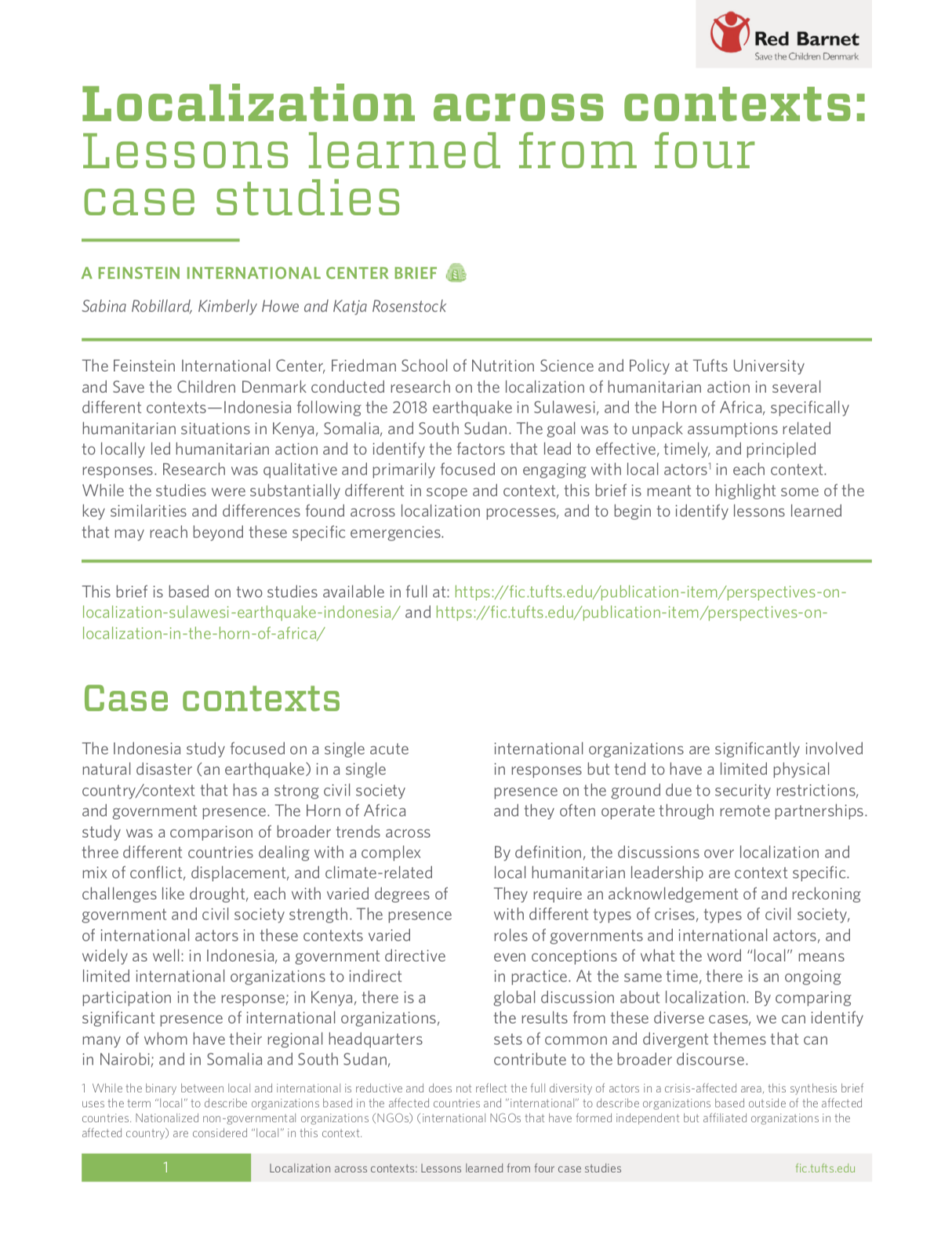Together with Save the Children Denmark, in 2019 Feinstein Researchers conducted research on the localization of humanitarian action in several contexts—Indonesia following the 2018 earthquake in Sulawesi, and the Horn of Africa, specifically humanitarian situations in Kenya, Somalia, and South Sudan. The goal of these two studies was to unpack assumptions about locally led humanitarian action and to identify the factors that lead to effective, timely, and principled responses.
While the studies were substantially different in scope and context, the authors found important similarities and differences. This brief highlights some of the most important similarities and differences that they found across the studies. Looking specifically at localization processes, they begin to identify lessons learned that may reach beyond these specific emergencies.
The brief is based on learning from these two studies:







